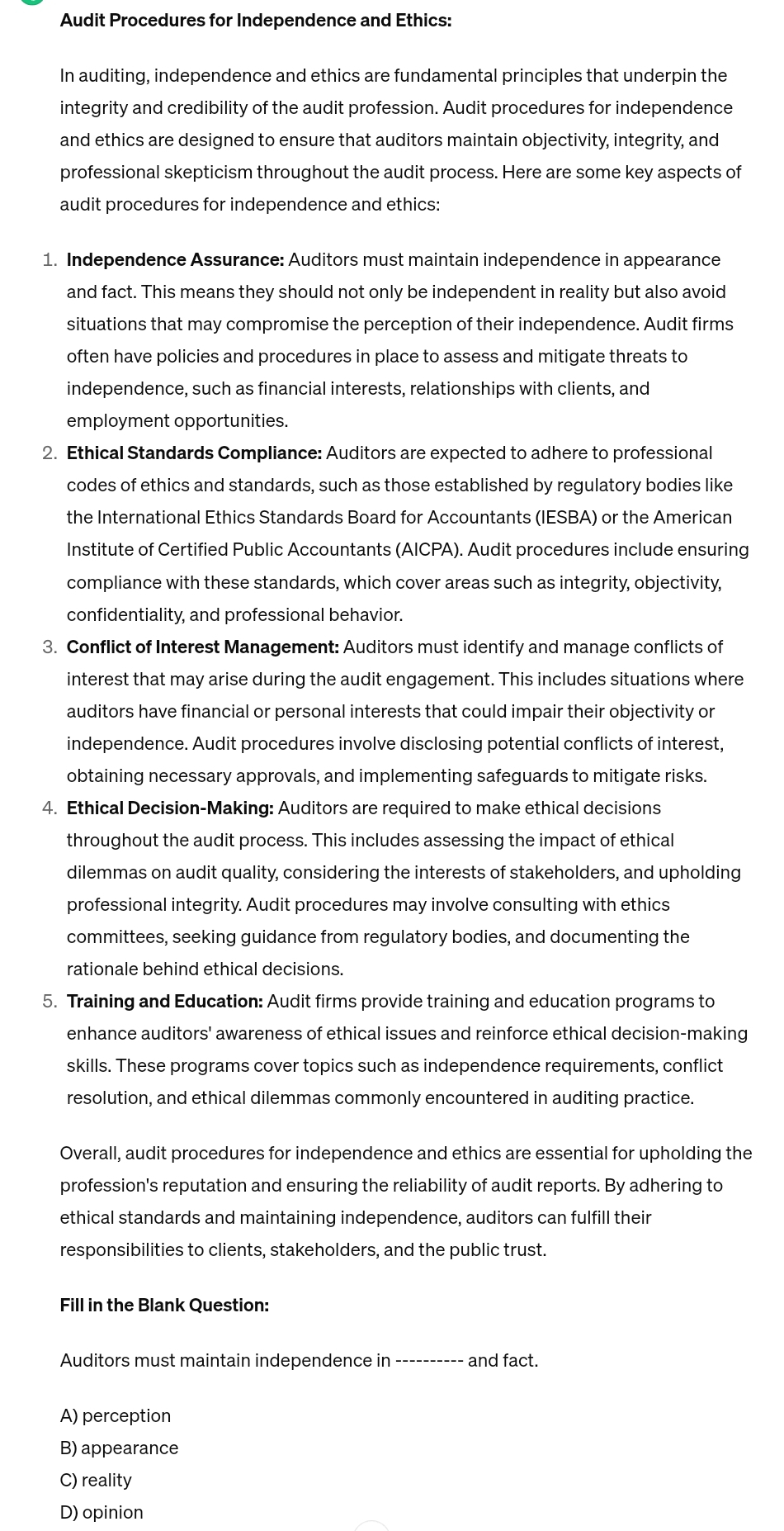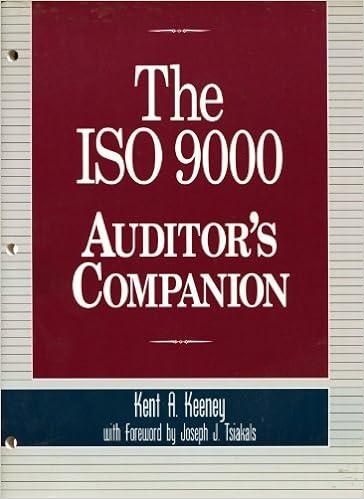Answered step by step
Verified Expert Solution
Question
1 Approved Answer
Audit Procedures for Independence and Ethics: In auditing, independence and ethics are fundamental principles that underpin the integrity and credibility of the audit profession. Audit
Audit Procedures for Independence and Ethics:
In auditing, independence and ethics are fundamental principles that underpin the integrity and credibility of the audit profession. Audit procedures for independence and ethics are designed to ensure that auditors maintain objectivity, integrity, and professional skepticism throughout the audit process. Here are some key aspects of audit procedures for independence and ethics:
Independence Assurance: Auditors must maintain independence in appearance and fact. This means they should not only be independent in reality but also avoid situations that may compromise the perception of their independence. Audit firms often have policies and procedures in place to assess and mitigate threats to independence, such as financial interests, relationships with clients, and employment opportunities.
Ethical Standards Compliance: Auditors are expected to adhere to professional codes of ethics and standards, such as those established by regulatory bodies like the International Ethics Standards Board for Accountants IESBA or the American Institute of Certified Public Accountants AICPA Audit procedures include ensuring compliance with these standards, which cover areas such as integrity, objectivity, confidentiality, and professional behavior.
Conflict of Interest Management: Auditors must identify and manage conflicts of interest that may arise during the audit engagement. This includes situations where auditors have financial or personal interests that could impair their objectivity or independence. Audit procedures involve disclosing potential conflicts of interest, obtaining necessary approvals, and implementing safeguards to mitigate risks.
Ethical DecisionMaking: Auditors are required to make ethical decisions throughout the audit process. This includes assessing the impact of ethical dilemmas on audit quality, considering the interests of stakeholders, and upholding professional integrity. Audit procedures may involve consulting with ethics committees, seeking guidance from regulatory bodies, and documenting the rationale behind ethical decisions.
Training and Education: Audit firms provide training and education programs to enhance auditors' awareness of ethical issues and reinforce ethical decisionmaking skills. These programs cover topics such as independence requirements, conflict resolution, and ethical dilemmas commonly encountered in auditing practice.
Overall, audit procedures for independence and ethics are essential for upholding the profession's reputation and ensuring the reliability of audit reports. By adhering to ethical standards and maintaining independence, auditors can fulfill their responsibilities to clients, stakeholders, and the public trust.
Fill in the Blank Question:
Auditors must maintain independence in and fact.
A perception
B appearance
C reality
D opinion

Step by Step Solution
There are 3 Steps involved in it
Step: 1

Get Instant Access to Expert-Tailored Solutions
See step-by-step solutions with expert insights and AI powered tools for academic success
Step: 2

Step: 3

Ace Your Homework with AI
Get the answers you need in no time with our AI-driven, step-by-step assistance
Get Started


